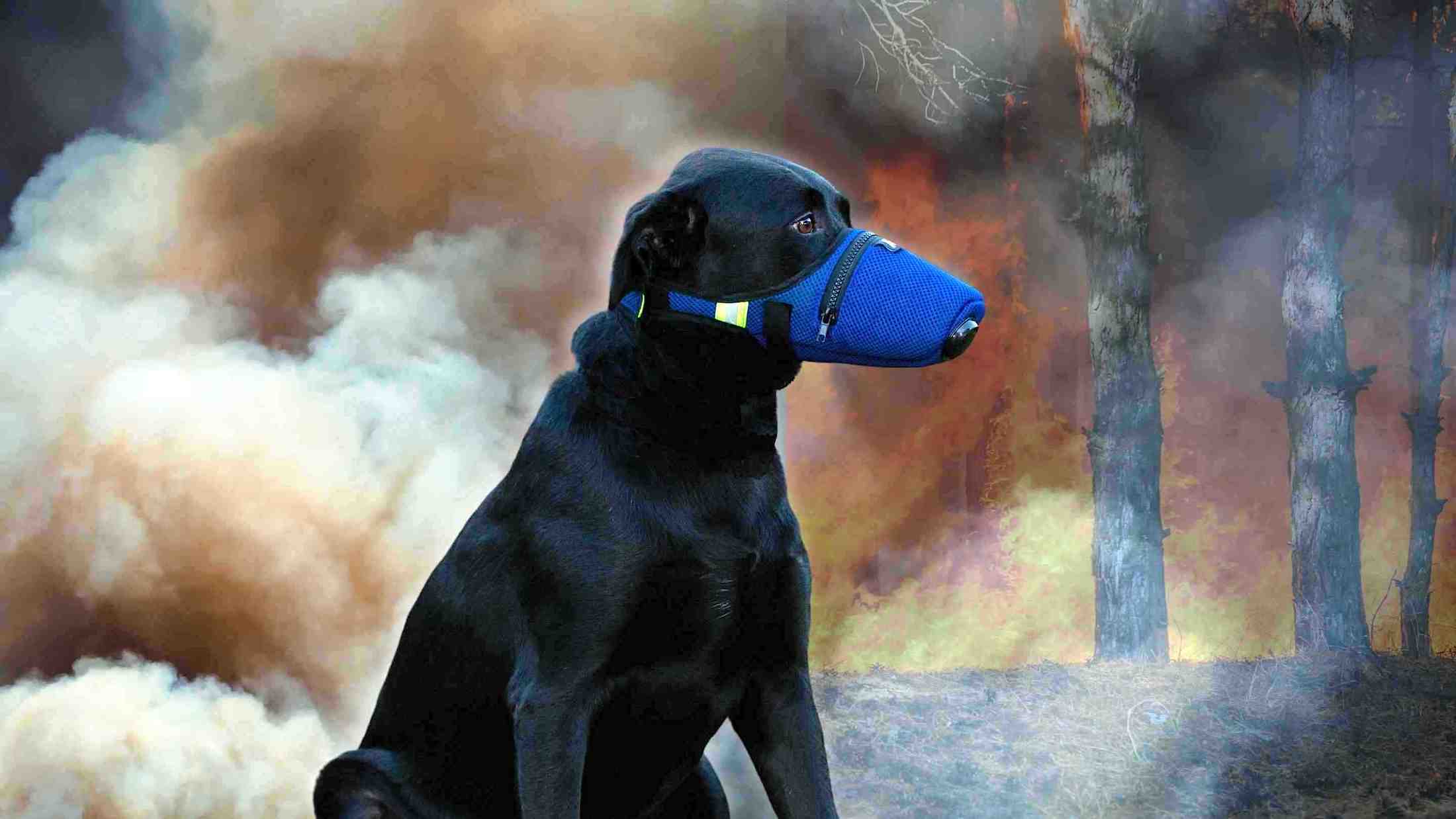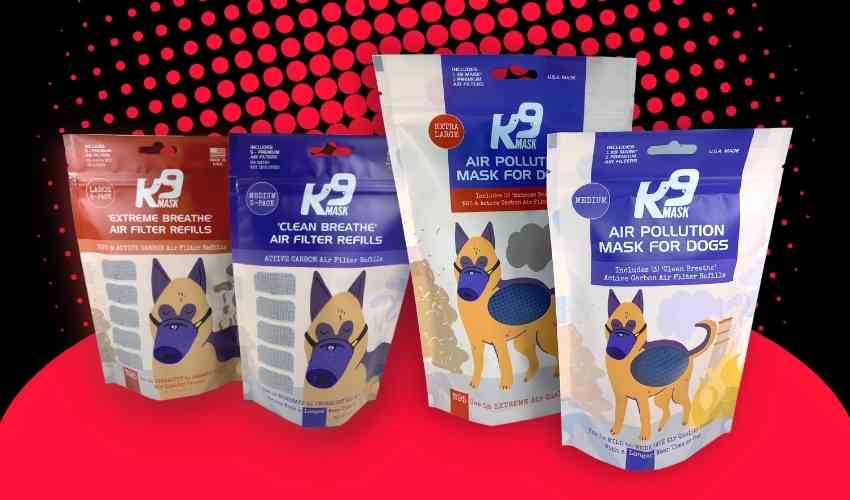Horses exposed to fire smoke can suffer respiratory injury; knowing what is normal can help you determine whether your horse might need veterinary attention.
Posted by UC Davis Center for Equine Health Horse Report | Dec 29, 2022
Fires throughout California and the western United States in recent years have exposed humans and horses to unhealthy air containing wildfire smoke and particulates. These particulates can build up in the respiratory system, causing a number of health problems for both species.
University of California (UC) Davis equine specialists have offered these suggestions to serve as a general guide on the effects of horses breathing air laden with particulates.
What Is in Smoke?
Smoke is comprised of carbon dioxide, carbon monoxide, particulate matter, soot, hydrocarbons, and other organic substances, including nitrogen oxides and trace minerals. Different types of wood, vegetation, plastics, house materials, and other combustibles produce different compounds when burned, which affect the composition of the smoke.
Particulate matter is the major pollutant of concern in wildfire smoke. Particulate is a general term used for a mixture of solid particles and liquid droplets found in the air. Particulates from smoke tend to be very small at less than one micron in diameter, which allows them to reach the deepest airways within the lung.

How Smoke Affects Horses
The effects of smoke on horses are similar to the effects on humans and can include irritation of the eyes and respiratory tract, aggravation of conditions like heaves (recurrent airway obstruction), and reduced lung function. High concentrations of particulates can cause persistent cough, increased nasal discharge, wheezing, and difficulty breathing. Particulates can also alter the immune system and reduce the ability of the lungs to remove foreign materials, such as pollen and bacteria, to which horses are normally exposed.
Assessing and Treating Smoke Inhalation in Horses
Horses exposed to fire smoke can suffer respiratory injury of varying degrees, ranging from mild irritation to severe smoke-inhalation-induced airway or lung damage. Knowing what is normal can help you determine whether your horse might need veterinary attention.
Have your horse(s) examined by a veterinarian if you note any of the following:
- Respiratory rate is consistently greater than 30 breaths/minute at rest.
- Nostrils have obvious flaring.
- There is obvious increased effort of breathing when watching the horse’s abdomen and rib cage.
- There is repetitive or deep coughing or abnormal nasal discharge.
Protecting Horses From Air Pollution
There is currently no available scientific data specifically regarding the impacts of various air quality index (AQI) levels on equine respiratory health. The American Lung Association provides guidelines and color-coding for AQI ranges, with green being the lowest (0-50) and maroon (301-500) the highest. These guidelines have generally been extrapolated for horses as well. The United States Equestrian Federation (USEF) recommends that event organizers consider canceling or suspending competitions if the AQI reaches 151 or above. Work with your veterinarian to determine the best plans for your individual horses, particularly if they have a history of respiratory issues such as heaves, asthma, or allergies.
Additionally, consider the following actions:
- When smoke is visible, limit activities (i.e., exercise) that increase airflow in and out of the lungs, which can trigger narrowing of the small airways in the lungs.
- Provide plenty of fresh water close to where your horse eats. Horses drink most of their water within two hours of eating hay, so having water close to the feeder increases water consumption. Water keeps the airways moist and facilitates clearance of inhaled particulate matter. This means the windpipe (trachea), large airways (bronchi), and small airways (bronchioles) can move the particulate material breathed in with the smoke. Dry airways cause particulate matter to stay in the lung and air passages.
- Limit dust exposure by feeding dust-free hay or soaking hay before feeding. This reduces particles in the dust, such as mold, fungi, pollens, and bacteria, that might be difficult to clear from the lungs.
- Contact your veterinarian if your horse is coughing or having difficulty breathing. A veterinarian can help determine the difference between a reactive airway from smoke and dust versus a bacterial infection and bronchitis or pneumonia. If your horse has a history of heaves or recurrent airway problems, there is a greater risk of secondary problems such as bacterial pneumonia.
- If your horse has primary or secondary problems with smoke-induced respiratory injury, contact your veterinarian, who can prescribe specific treatments such as intravenous fluids, bronchodilator drugs, nebulization, or other measures to facilitate hydration of the airway passages. Your veterinarian might also recommend tests to determine whether a secondary bacterial infection has arisen and is contributing to the current respiratory problem.
- Give your horse ample time to recover from smoke-induced airway insult. Airway damage resulting from wildfire smoke takes four to six weeks to heal. Ideally, give your horse that amount of time off from the time when the air quality returns to normal. Attempting exercise might aggravate the condition, delay the healing process, and compromise your horse’s performance for many weeks or months. Horses should return to exercise no sooner than two weeks post-smoke-inhalation, following the clearance of the atmosphere of all smoke.
*************************************
The Good Air Team is considering if it is possible to create an air filter mask for horses. Can we help horses in wildfire smoke by protecting their lungs and heart during episodes of poor air quality? While K9 Mask air filters for dogs are helpful for canines during wildfires could the same type of air filter products be used to protect the health of a horse? These are the questions we are curious about for horse health.













